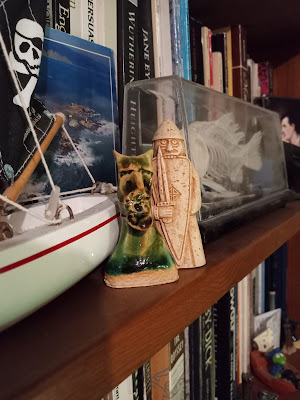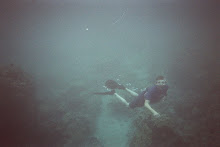Wednesday, June 29, 2022
Sunday, June 26, 2022
"You Don't Know, If You Don't Go."
Quick Richmond Harbor paddle
Lately, I have been letting the wind forecasts determine my actions, and that's a mistake. Guidance is great, but I have been forgetting about local geography and wind direction. For example, according to a reputable forecast, today was not good for paddle boarding Richmond: too windy early and with rising winds throughout the day. But that doesn't take into account the harbor itself or my purpose. Harbors are full of wind breaks and wind tunnels, both of which may be used to advantage. Also, the prevailing wind direction would push me back to my exit spot. Finally, I was looking for a workout, not a cruise. I prefer a little wind and chop, usually (and depending on which board or boat I am paddling).
Since I hadn't planned to paddle today, but only to check the conditions, I didn't have my water camera, my shorts with the big pocket for that camera, or the big hat I have taken to wearing as better sun protection. I almost let all that stop me. Instead, because the water looked good, I dug around in my truck for proper enough gear and paddled there for the first time.
I was also reminded that it can be a good thing to forget the water camera. Instead of looking for shots, I was looking about and paying more attention to my paddling and using the wind.
Thursday, June 23, 2022
Spot Check
Found a launch spot only 10 minutes from my house. Free, though limited parking. Richmond harbor, so a working environment. Typically windy site, but I would probably be able to check that from my back porch and looking south at the fronds of the tall palm tree in the distance.
Maybe tomorrow.
Tuesday, June 21, 2022
Monday, June 20, 2022
Sunday, June 19, 2022
"Functional Ambiguity"
John Keats called it "negative capability".
From the reader's point of view -- in my intro to literature classes -- I call it "functional ambiguity".
I should define "it" in each case.
I am working on "that".
Postscript:
The key point is that just as the poet--according to John Keats--has to be "capable of being in uncertainties, Mysteries, doubts, without any irritable reaching after fact & reason" and so forth, the reader of literature, especially poetry, has to able to be capable of not-knowing-but-going-forward, capable of accepting that not everything in a poem, classic or contemporary, may make sense at first (or ever), capable of not stopping, not freezing, just because that reader doesn't understand fully the references, the phrasing, the character, or even the emotion. I call that concept "functional ambiguity," for what's unknown or ambiguous doesn't have to halt the reading.
Too many of my students get frustrated and stop attempting to understand when they feel swamped by what they don't yet know or understand. This is perfectly understandable, but often if we just keep reading a poem, for example, to the very end, the later material helps us to understand the earlier material -- or enough of a character, a situation, an emotion, or an attitude comes clear by the end that we can return to the beginning and get more from the second or third reading. And so forth.
By experience, accomplished readers tend to be "capable of being in uncertainties" and not getting swamped.


















































